State Lawmakers Who Own Restaurants Confront Workforce Woes
By Zac Schultz | Here & Now
October 7, 2021
Senior political reporter Zac Schultz examines the experiences of Rob Swearingen, Francesca Hong and Michael Schraa, who own a supper club, noodle shop and custard stand, respectively, as they have grappled with worker shortages while also as Assembly members they play a role in Wisconsin's response to an industry continuing to reel from the pandemic.
Anywhere you travel in Wisconsin, you will find ‘Now Hiring’ signs hanging in the windows of restaurants or displayed on a sign or even listed on the menu board next to the daily special.
“I’ve got an ad in the paper that is reoccurring every time the paper’s published that I’m looking for a cook and waitstaff,” said Rob Swearingen, who with his wife owns the Al-Gen Dinner Club in Rhinelander.
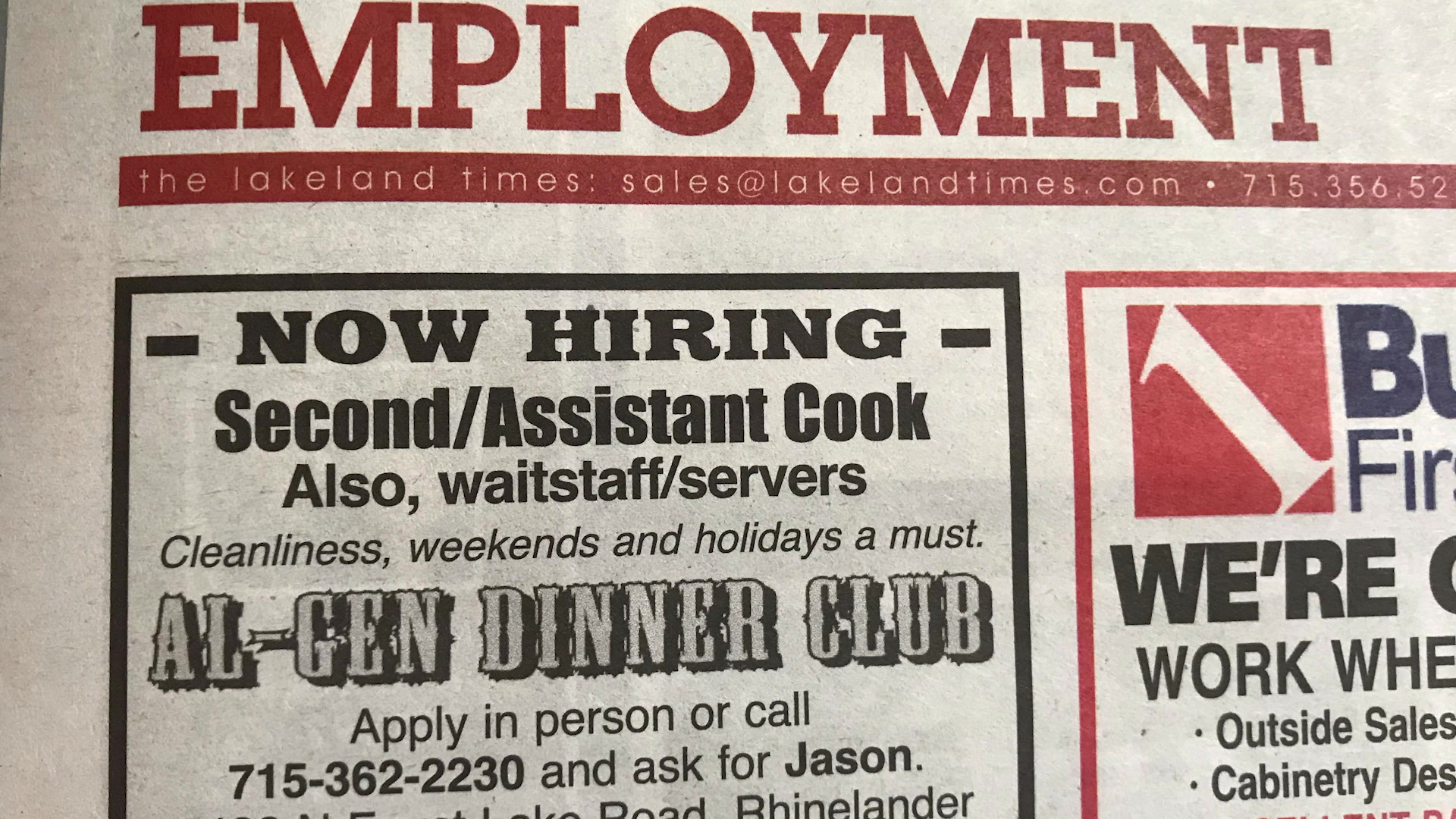
A help wanted newspaper ad for Al-Gen Dinner Club seeks a second/assistant cook as well as servers, noting “cleanliness, weekends and holidays a must.” (Credit: PBS Wisconsin)
Swearingen is also a Republican Representative in the state Assembly for the 34th District.
He said the problem started on St. Patrick’s Day of 2020.
“So we had the corned beef in the oven,” Swearingen said.
That’s when Gov. Tony Evers issued the first “Safer at Home” order on March 24 and shut down most of the state in an effort to stop the spread of the coronavirus.
“We had reservations and we were ready to go, and the light switch went off and it stayed off for a long time,” explained Swearingen.
The shutdown meant laying off bartenders and wait staff.

Rob Swearingen is an owner of Al-Gen Dinner Club, which is located near the eastern edge of Rhinelander. (Credit: PBS Wisconsin)
When they were allowed to open up in a limited capacity on May 15, 2020, Swearingen found many employees weren’t coming back.
“It’s been a struggle since then to try to bring the staff up to where we were pre-covid,” Swearingen said.
“There is not a sector that I know that isn’t scrambling for staff,” said Kristine Hillmer, president and CEO of the Wisconsin Restaurant Association.
She said a lot of workers found jobs outside the hospitality industry.
“We’ve statewide lost about 22% of our workforce, and they went to other industries that were still hiring during the pandemic, specifically health care, manufacturing, retail. And so a lot of those folks are no longer available to come back and work,” said Hillmer.
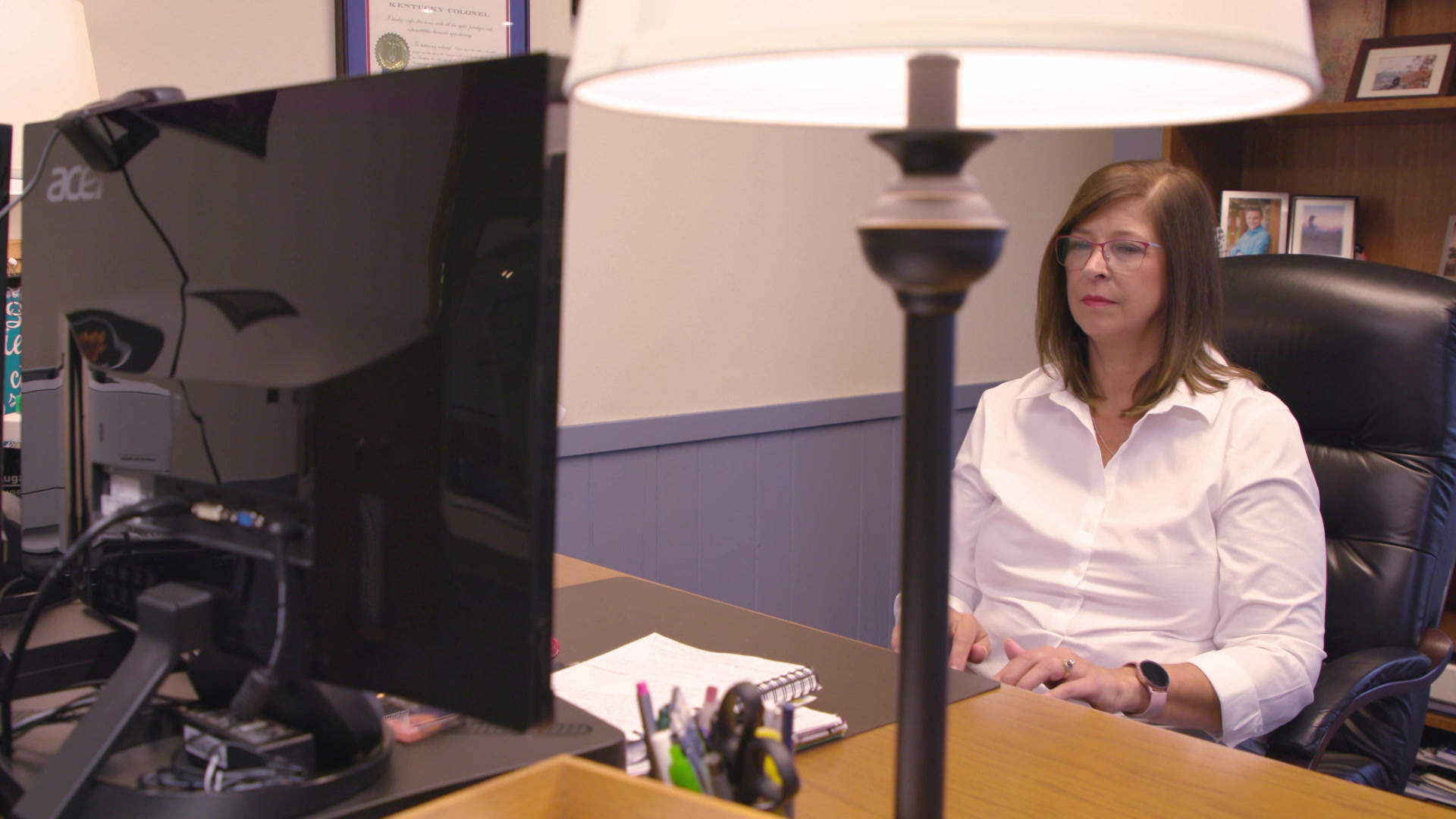
Kristine Hillmer, president and CEO of the Wisconsin Restaurant Association, notes the industry has lost between one-fifth and one-quarter of its workforce since the pandemic started, with many former employees finding jobs in other lines of work. (Credit: PBS Wisconsin)
“It’s important to remember that we had a people shortage and a labor shortage in the state prior to the pandemic,” said Francesca Hong, co-owner at Morris Ramen, a noodle shop in Madison.
She said the reasons for the worker shortage go beyond people switching careers, saying government has not enacted policies that would help people get back in the workforce.
“If there was universal health care, if there was paid sick leave, if there was affordable and accessible, high quality child care,” said Hong, “we wouldn’t be losing so many women in this industry. ”
When Hong’s restaurant temporarily closed down, she decided to run for the Assembly as a Democrat.
“We needed a really strong working class voice who not only understood the needs of service industry workers, but those in communities that have always been marginalized,” said Hong, who was elected in 2020 and represents the 76th District.

Francesca Hong is an owner of Morris Ramen, which is located just off the Capitol Square in downtown Madison. (Credit: PBS Wisconsin)
There are a number of restaurant and bar owners in the state Legislature, but like Swearingen, most of them are Republicans.
They focused on one thing for causing the worker shortage — the extra $300 a week in unemployment benefits provided by the federal government to help workers displaced by the pandemic.
“The only incentive that some of these people had to get off the couch was to go to the mailbox once a week,” said Swearingen.
Evers didn’t need legislative approval to accept the extra benefits, and he vetoed a Republican bill that would have ended the program during the summer of 2021.
Republican Rep. Michael Schraa, who represents the 53rd District in the Assembly, was convinced it was the extra $300 keeping people from working at his shop, Leon’s Frozen Custard in Oshkosh.
“I’ll pay you $20 an hour. I’ll put you up for the week. I’m 10 employees short,” said Schraa during a July 27 floor session of the Assembly.
During an attempt to override the veto that day, he said Rep. Hong should support ending the benefits.
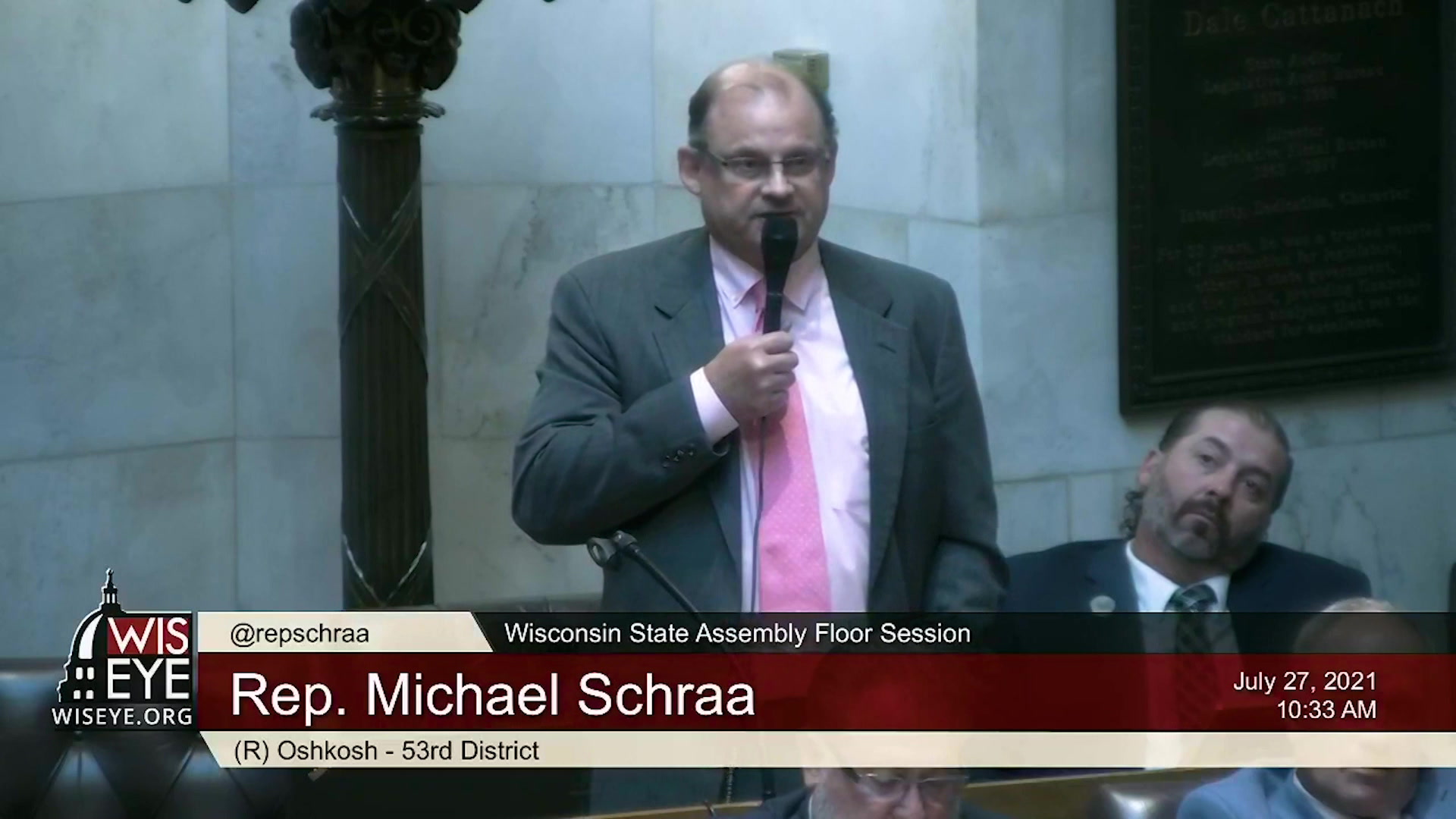
State Rep. Michael Schraa, R-Oshkosh, speaks about unemployment benefits during a floor session of the Wisconsin Assembly on July 27, 2021. (Credit: Courtesy of WisconsinEye)
“The gentlelady from the 76th, when we were on the floor a couple weeks ago, she actually confessed to me that she had to bus tables because she did not have enough workers,” said Schraa during the floor session.
“I didn’t confess sh** to you,” said Hong in reply.
Hong’s response got her mic cut off for a moment.
“It’s not a surprise the gentleman from the 53rd is struggling to retain workers. I certainly wouldn’t want to work for you. It is an honor to bus tables,” Hong said.
“Do you know how many people are actually on pandemic UI right now? 17,459. Out of 3.1 million people in the Wisconsin workforce. That’s who you’re going after,” she added.
“This is political theater,” Hong concluded.
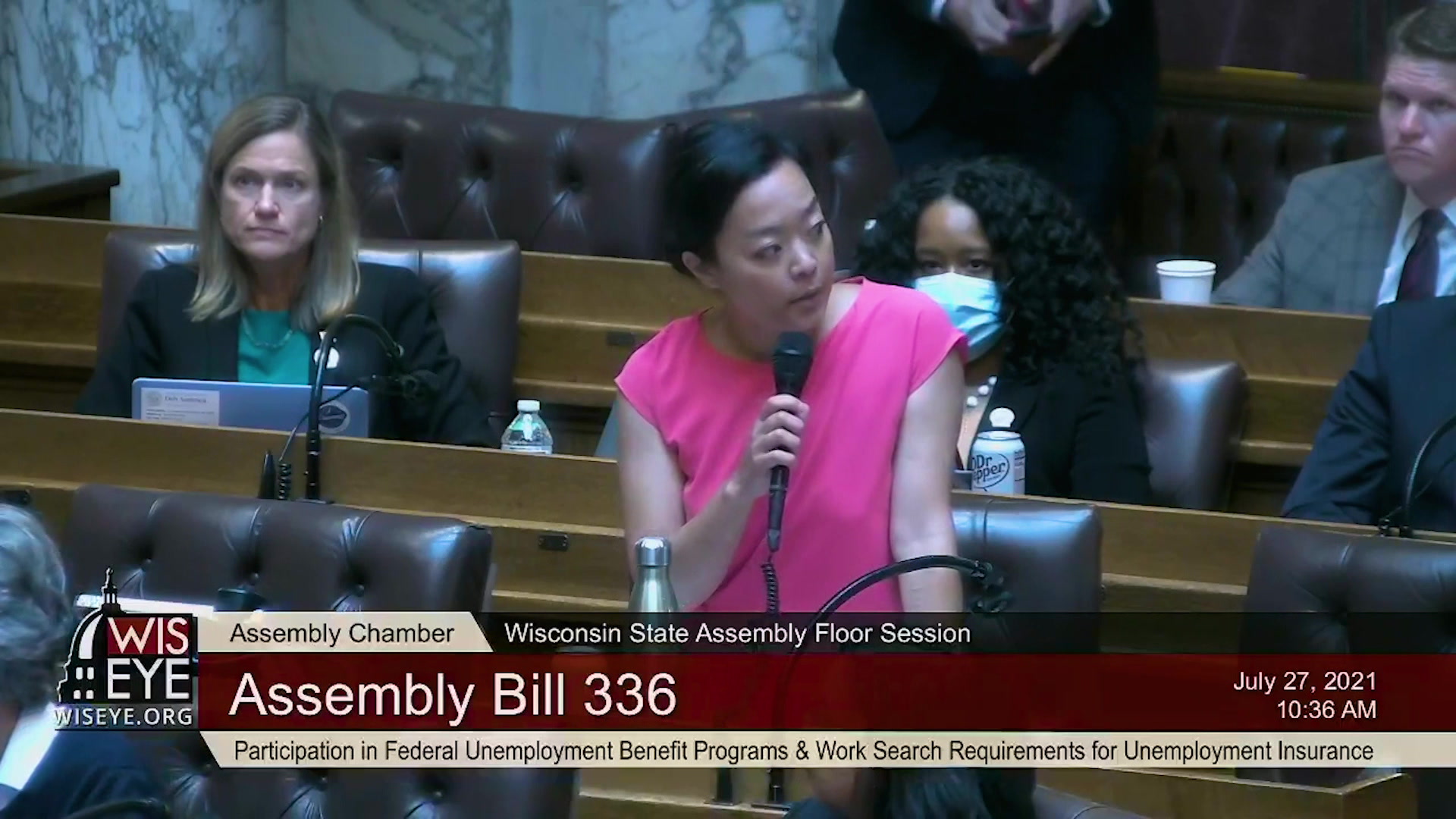
State Rep. Francesca Hong, D-Madison, replies to comments made by Rep. Michael Schraa, R-Oshkosh, during a floor session of the Wisconsin Assembly on July 27, 2021. (Credit: Courtesy of WisconsinEye)
Evers’ veto was upheld.
Meanwhile, Hong has no regrets about that day.
“If anyone should be attacking work ethic,” she said “it’s the work ethic of my Republican colleagues.”
A Wall Street Journal report showed states that ended the benefits early saw about the same job growth rate over the summer as states that did not.
The extra $300 a week in federal benefits ended in early September.
“Have I had an increase in applications? No. One or two,” said Swearingen.
- “It’s been a struggle since then to try to bring the staff up to where we were pre-covid,” says Rob Swearingen, an owner of Al-Gen Dinner Club in Rhinelander and a Republican member of the Assembly. (Credit: PBS Wisconsin)
- “It’s important to remember that we had a people shortage and a labor shortage in the state prior to the pandemic,” says Francesca Hong, an owner of Morris Ramen in Madison and a Democratic member of the Assembly. (Credit: PBS Wisconsin)
The Wisconsin Restaurant Association supported the move to end the benefits early.
“Do I think that the federal unemployment dollars had an impact on restaurant workers and so on? Absolutely,” Hillmer said.
I think it was a factor out of many factors,” she added. “Is the elimination of it going to completely take away the trend that we can’t find workers? Absolutely not.”
Hillmer said a bigger trend is baby boomers retiring and not taking a part time job, and the number of teenagers who don’t have time for work.
And of course Wisconsin is still in the middle of a pandemic.
“We know that there’s a lot of folks that are concerned about covid and returning to work,” said Hillmer.
- Customers at Morris Ramen sit down at a sidewalk table for their meals. (Credit: PBS Wisconsin)
- Customers at Al-Gen Dinner Club in Rhinelander sit down in its dining room for their meals. (Credit: PBS Wisconsin)
All of this has led to changes in the industry, but first restaurants need to keep the employees they already have.
“One of my employees came in late tonight. I had some stern words with him — get back to work — as I have nobody to replace him,” said Swearingen.
“I think the restaurant community is inherently about caring for one another,” said Hong, “and those are the most successful restaurants, are the restaurants that take care of their staff, because that will allow the staff to take care of their customers.”
 Passport
Passport





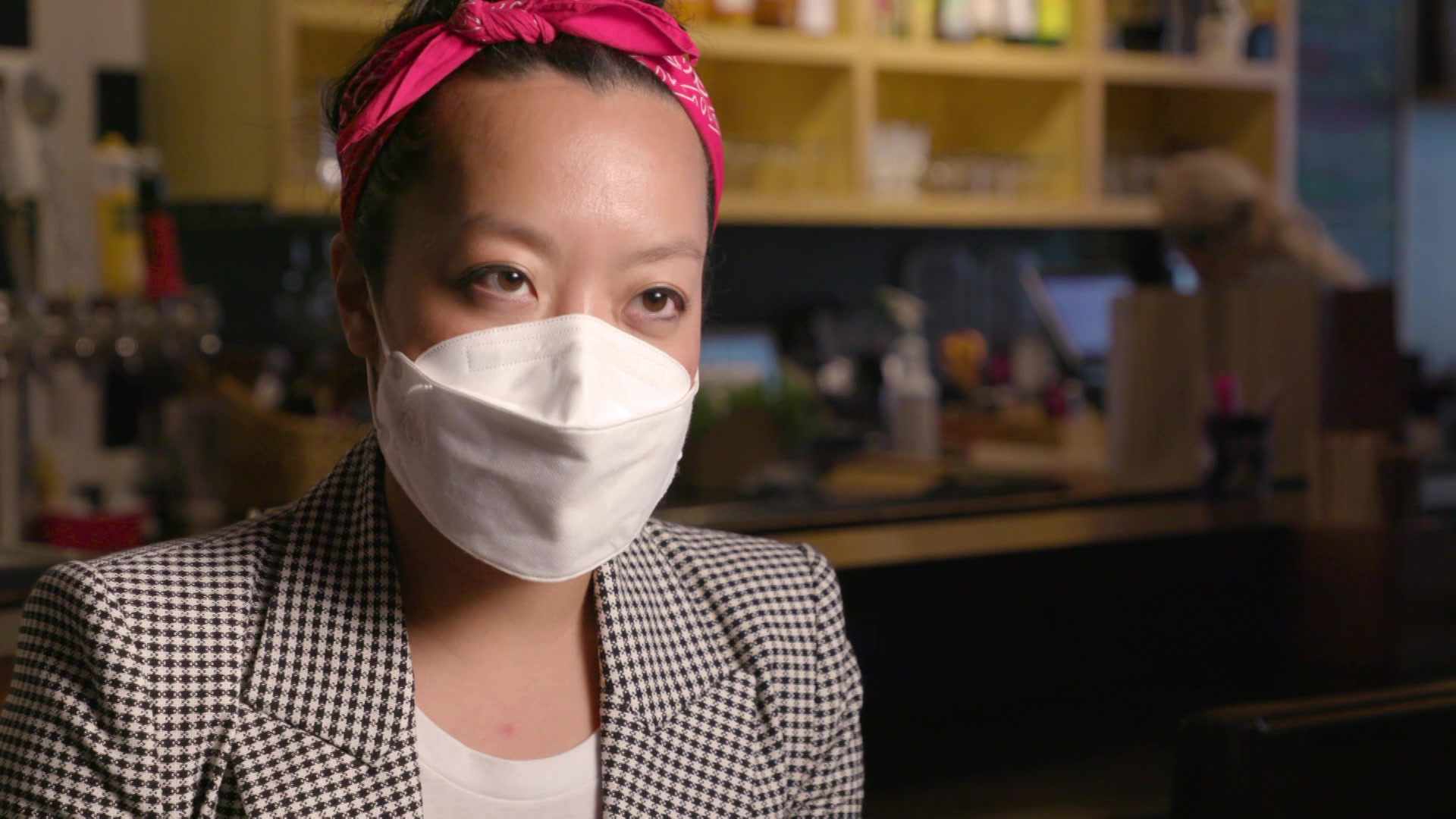
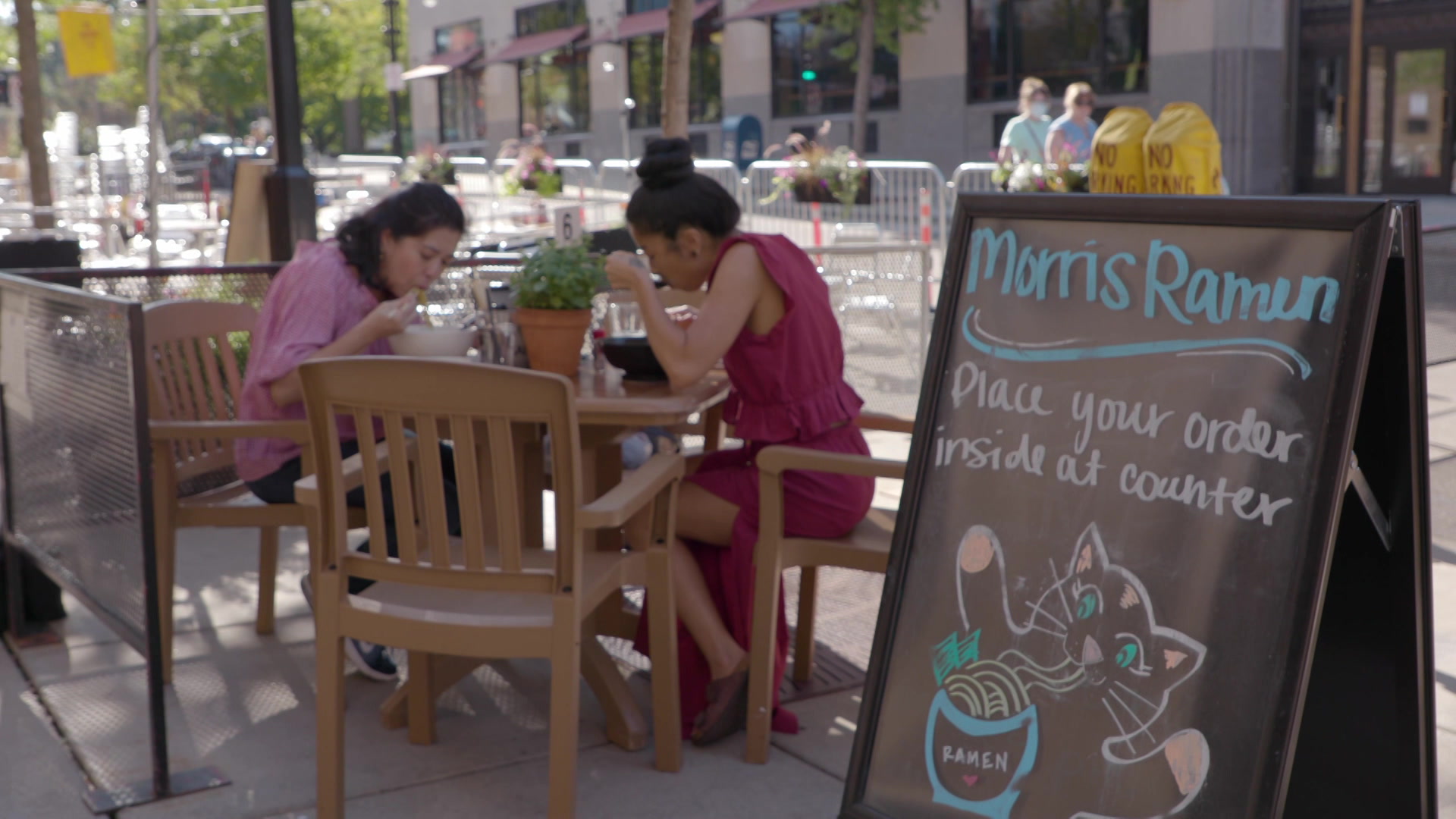
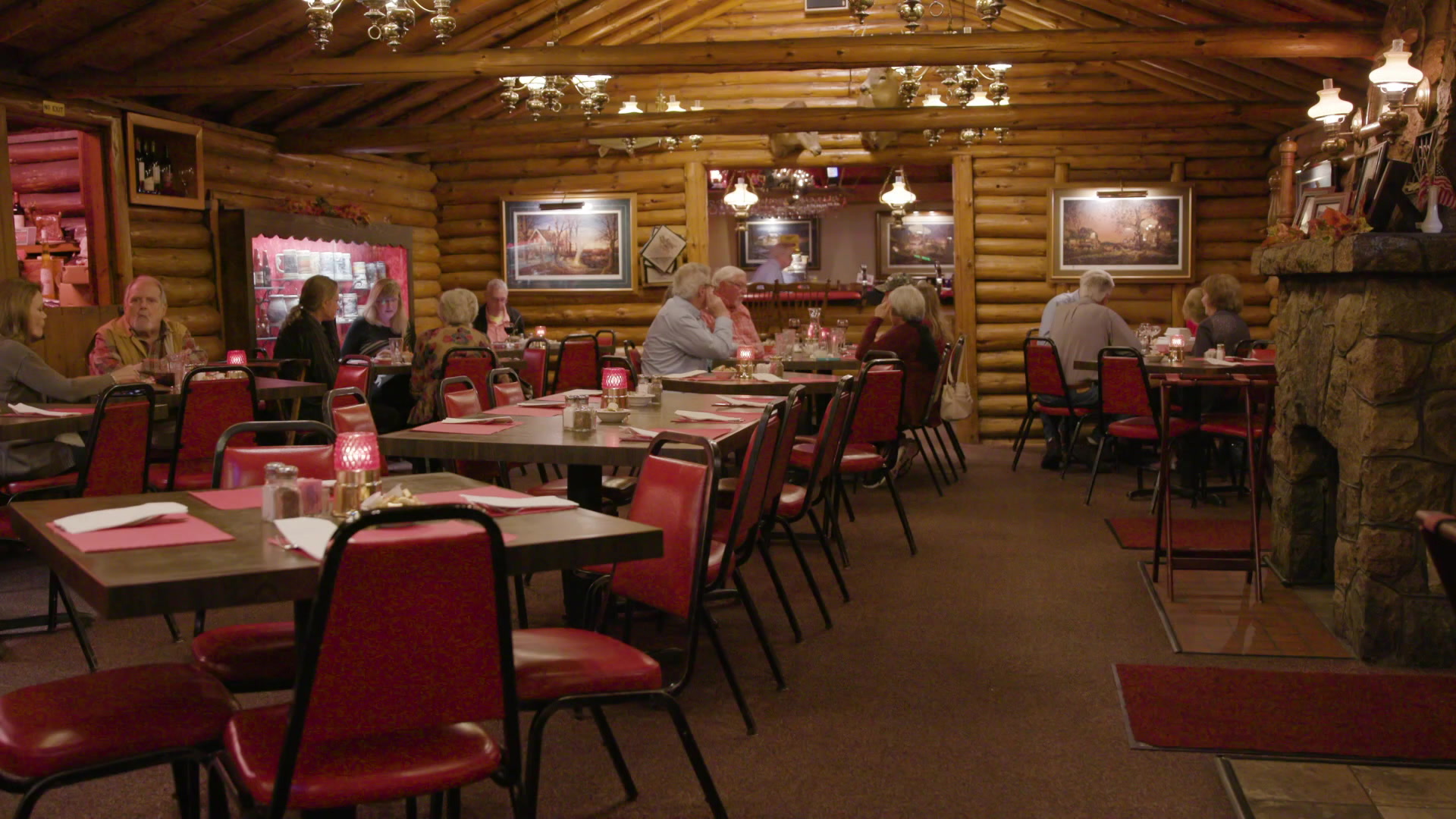

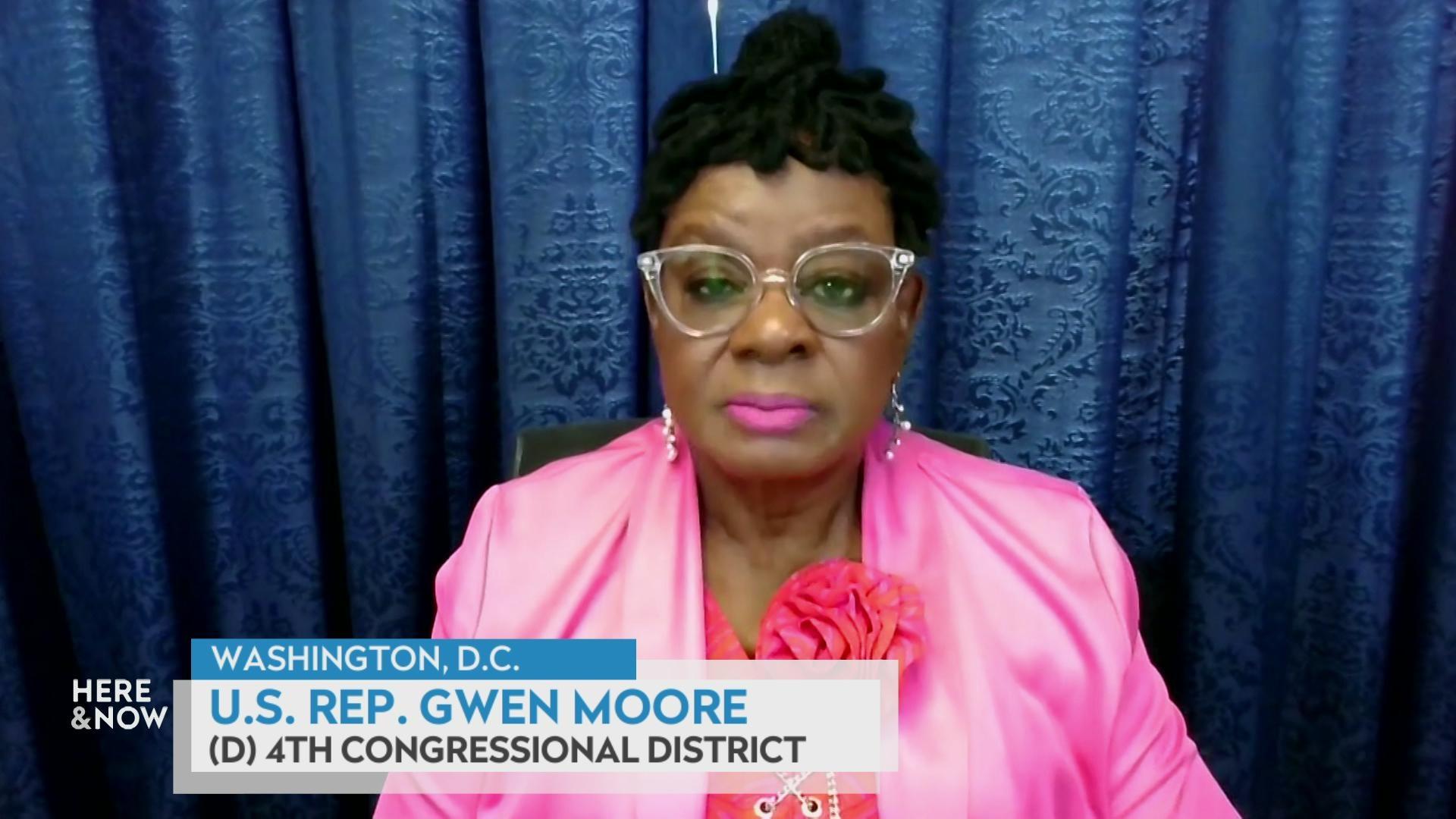





Follow Us